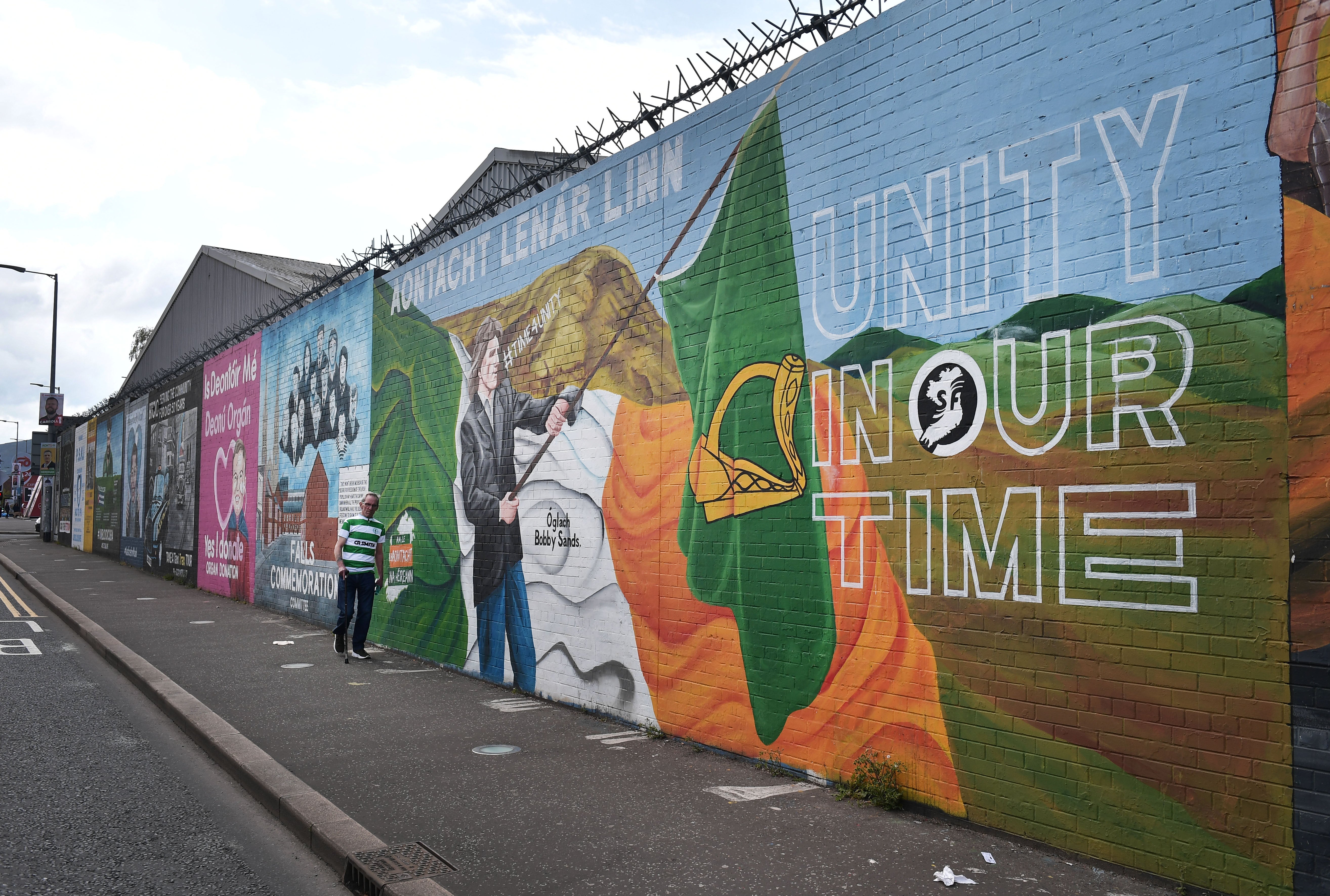Will the Northern Ireland elections finally end a relentless game of tug of war?
For this election, Sinn Fein have put down the rope and joined the crowd of onlookers watching the DUP tangle themselves in knots, writes Caolán Magee


In Northern Ireland, we live in a perpetual game of tug of war. On one side of the rope stands nationalists and republicans who pull in the direction of closer ties with the Republic of Ireland, with the eventual goal of a united Ireland. Unionists and loyalists stand on the other side of the rope, pulling in the direction of Britain, to solidify Northern Ireland’s status in the United Kingdom.
For every action, there is an equal and opposite reaction. This is because political decisions are taken in the context of the constitutional question, with little consideration given to whether these decisions will materially improve people’s lives.
An inch is given, a mile taken, before the rope cannot withstand the tension and it snaps. Republicans and loyalists fall into the mud and splash the onlookers of the sectarian spectacle. Historically, this came in the form of bombings and killings. Today, it comes in the form of assembly collapses.
Two months ago, the Democratic Unionist Party (DUP) pulled the rope from under Stormont by collapsing the Northern Ireland executive over the protocol – a repercussion of Brexit – that the DUP ironically campaigned for.
Despite the detriment leaving the single market would have on the Northern Irish economy, the DUP were willing to sacrifice the economic wellbeing of its citizens, to pull the north of Ireland further away from the Republic of Ireland via the installation of customs checks and a hard border across the island of Ireland.
That’s why the DUP rejected Theresa May’s soft Brexit deal – which would have allowed the north of Ireland to continue trading freely with Britain and the EU. Instead, they chose to gamble their Westminster balance of power on the word of Boris Johnson.
Johnson spoke at the DUP party conference stating he would not “damage the fabric of the union with regulatory checks and customs controls, between GB and NI” and that “no British Conservative government would sign up to any such arrangement”. Three months later, he signed up to such an arrangement.
“What a fool I was! I was only a puppet, and so was Ulster, and so was Ireland, in the political game that was to get the Conservative Party into power.” These words from Northern Ireland’s founding father Edward Carson are as applicable today as they were a century ago. Deceit is not just an anomaly of Boris Johnson’s tenure, but a vital component in the Tory machine’s toxic relationship with Ulster unionism.
The arrangement, otherwise known as the Northern Ireland protocol or the “Irish Sea border”, allows the north of Ireland to trade freely with the Republic of Ireland and Europe, and export goods freely into the UK, while some imports are subject to checks at ports across Northern Ireland.
This makes Northern Ireland the only place that has simultaneous access to these markets. This was recognised in a recent poll where the majority of people here perceive this arrangement as a "good thing” for Northern Ireland’s economy.
The DUP could have taken credit for this. They were, after all, the only mainstream party that campaigned for Brexit. But closer trading ties with the Republic and regulatory unalignment with Great Britain are perceived as a pull in the direction of closer ties with the Republic of Ireland or an “economic united Ireland”, as trade between the north and south of the island increased by £2.3bn in 2021.
The paradox that closer cooperation with the Republic is beneficial to Northern Ireland’s economy created a rift in the DUP, leading to the ousting of first minister Arlene Foster in a coup by creationist Edwin Poots, who has since been replaced by Jeffrey Donaldson.
Now with the assembly election on Thursday, the DUP have implied that they will not share power with nationalists – a necessary precondition of the establishment of an executive as outlined in the Good Friday Agreement.
The protocol has become the DUP’s latest weapon in their attempt to sectarianise the election. Anti-protocol rallies have been held in Orange lodges and on the back of lorry trailers to protest it. Draped in sashes and wrapped in union flags, they have attempted to gather the sons of Ulster once again, tightening their grip on the rope, as they refuse to let the sun set on the last bastion of the British empire. But their cries of “No Surrender” are falling on deaf ears – as numbers at these rallies appear to be dwindling.
The Irish nationalist and republican party, Sinn Fein, currently lead the polls which would see a nationalist first minister for the first time in Northern Ireland’s history. This would make Sinn Fein the largest party north and south of the island – which they will use to pressure the British government into allowing a referendum on Irish reunification.
To keep up to speed with all the latest opinions and comment, sign up to our free weekly Voices Dispatches newsletter by clicking here
But Sinn Fein has downplayed this, not rising to the DUP’s attempts to make the election about the constitutional question that could serve to escalate tensions. Instead, Sinn Fein’s rhetoric has been about inclusivity and diversity.
Northern Ireland also has a selection of progressive parties: Alliance, Green and People Before Profit which gain votes from the growing number of unaligned voters. They pose the real threat to the entrenched status quo, cutting across the binary distinction of nationalist or unionist. Their minds are free from the constraints of constitutional questions, of a past rooted in historical rights and wrongs, as they choose to vote with their heads before their hearts.
Sinn Fein’s soft approach to the election, their progressive record on social issues and their gestures of solidarity to the other progressive parties are a signal to the middle ground. These voters may not give their first preference votes to Sinn Fein, but under an electoral system of proportional representation, they may transfer to them to keep out the DUP. And it is these voters who will inevitably decide Ireland’s constitutional fate in the event of an Irish unity referendum.
So, for this election, Sinn Fein has put down the rope and joined the crowd of onlookers watching the DUP tangle themselves in knots. A new generation of voters wants to unshackle themselves from a rope that has pitted the two communities against each other for a century.






Join our commenting forum
Join thought-provoking conversations, follow other Independent readers and see their replies
Comments